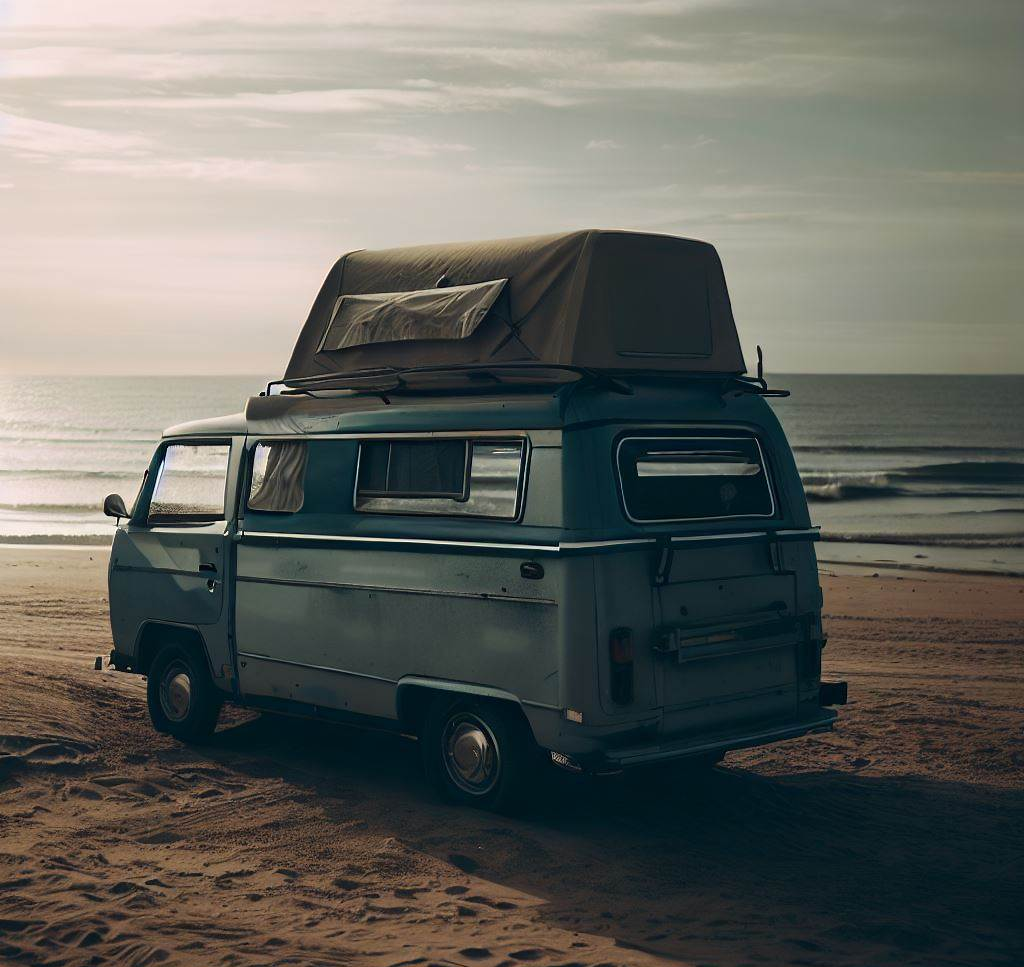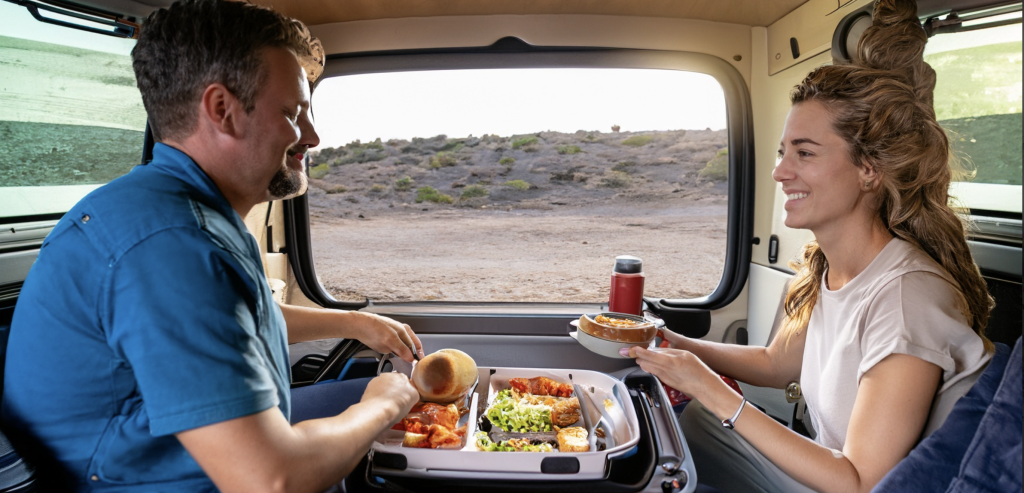Car camping is a type of camping that involves sleeping in your car instead of a tent. It can be a convenient, comfortable, and affordable way to explore the outdoors, especially if you don’t have much camping gear or experience. You can car camp in designated campgrounds, remote areas, or even urban settings, as long as you follow the local laws and regulations. Car camping can also offer you more flexibility and security than tent camping, as you can easily move around, store your belongings, and protect yourself from the weather and wildlife. However, car camping also has some challenges and drawbacks, such as finding a suitable place to park, dealing with limited space, and managing your power and water supply. In this article, we will review some of the benefits and tips of car camping, as well as some of the best cars and gear for car camping.
The Benefits and Tips of Car Camping
Car camping can offer you many benefits, such as:
- Saving money: Car camping can help you save money on accommodation, transportation, and camping gear. You don’t need to pay for hotels, motels, or Airbnb rentals when you can sleep in your car. You also don’t need to buy or rent a tent, sleeping bag, sleeping pad, or other camping equipment when you can use your car’s seats, blankets, pillows, or air mattress. You can also save money on gas by driving less and staying longer in one place.
- Saving time: Car camping can help you save time on setting up and packing up your campsite. You don’t need to spend hours pitching a tent, inflating a sleeping pad, or rolling a sleeping bag when you can simply park your car and hop in. You also don’t need to spend hours packing up your tent, deflating your sleeping pad, or stuffing your sleeping bag when you can simply start your car and drive away.
- Being comfortable: Car camping can help you be more comfortable than tent camping. You can enjoy the warmth, privacy, and security of your car’s interior. You can also adjust the temperature, ventilation, and lighting of your car to suit your preferences. You can also access your car’s entertainment system, such as radio, music, or podcasts. You can also use your car’s power outlets to charge your devices or power your appliances.
- Being flexible: Car camping can help you be more flexible than tent camping. You can choose where to park and sleep according to your needs and interests. You can also change your plans easily if the weather turns bad, the campground is full, or the road is closed. You can also explore more places and activities without being tied down to a fixed location.
However, car camping also has some tips that you should follow to make it more enjoyable and safe, such as:
- Researching before you go: Before you go car camping, you should research where to park and sleep legally and safely. You should check the local laws and regulations regarding overnight parking and camping in public or private lands. You should also check the availability and amenities of campgrounds or other facilities that allow car camping. You should also check the weather forecast and road conditions of your destination.
- Preparing your car: Before you go car camping, you should prepare your car for sleeping and living in it. You should clean your car’s interior and exterior to make it more comfortable and hygienic. You should also check your car’s fluids, tires, battery, brakes, lights, and other parts to make sure they are in good working order. You should also fill up your gas tank and pack some emergency tools and supplies in case of breakdowns or accidents.
- Organizing your gear: Before you go car camping, you should organize your gear for sleeping and living in your car. You should pack only what you need and use storage containers or organizers to keep your gear neat and accessible. You should also arrange your gear in a way that maximizes your space and minimizes your clutter. You should also leave some space for ventilation and movement in your car.
- Managing your resources: When you are car camping, you should manage your resources wisely to avoid running out of power or water. You should conserve your car’s battery by turning off unnecessary lights or devices when not in use. You should also use solar panels or portable power devices to charge your devices or power your appliances. You should also conserve your water by using reusable bottles or jugs instead of disposable ones. You should also use biodegradable soap or wipes for washing yourself or your dishes.

The Best Cars and Gear for Car Camping
The best cars for car camping are those that have enough space, comfort, and reliability for sleeping and living in them. Some of the factors to consider when choosing a car for car camping are:
- Size: The size of your car determines how much space you have for sleeping and storing your gear. You should look for a car that has enough cargo space and weight capacity for your needs. You should also look for a car that has foldable or removable seats, or a flat floor, to create more space for sleeping. You should also consider the height of your car, as some places may have height restrictions for parking or camping.
- Features: The features of your car determine how comfortable and convenient you are when sleeping and living in it. You should look for a car that has all-wheel drive or four-wheel drive capabilities, as they can handle different terrains and weather conditions better. You should also look for a car that has good gas mileage or even electric cars, as they can save you money and reduce your environmental impact. You should also look for a car that has power outlets, entertainment system, climate control, and security system, as they can enhance your comfort and safety.
- Reliability: The reliability of your car determines how well it performs and lasts on the road. You should look for a car that has a good reputation and history of durability and dependability. You should also look for a car that has low maintenance and repair costs, as they can save you money and hassle. You should also look for a car that has a warranty or roadside assistance, as they can give you peace of mind and support.
Some examples of cars that are suitable for car camping are:
- SUVs: SUVs are spacious, comfortable, and versatile vehicles that can accommodate different types of gear and activities. They also have high ground clearance, large windows, and roof racks, which can enhance your visibility and storage options. Some examples of SUVs that are good for car camping are Toyota RAV4, Honda CR-V, Subaru Outback, Jeep Wrangler, and Ford Escape.
- Vans: Vans are large, roomy, and customizable vehicles that can fit multiple people and gear. They also have sliding doors, rear doors, and windows, which can provide easy access and ventilation. Some examples of vans that are good for car camping are Mercedes-Benz Sprinter, Ford Transit, Ram ProMaster, Volkswagen Transporter, and Honda Odyssey.
- Trucks: Trucks are powerful, sturdy, and rugged vehicles that can handle rough roads and heavy loads. They also have truck beds, which can provide extra space for sleeping or storing gear. Some examples of trucks that are good for car camping are Toyota Tacoma, Ford F-150, Chevrolet Silverado, Ram 1500, and Nissan Frontier.
The best gear for car camping are those that are compact, lightweight, and multifunctional for sleeping and living in your car. Some of the gear to consider when car camping are:
- Sleeping gear: Sleeping gear includes items that provide comfort and insulation when sleeping in your car. You should look for sleeping gear that fits your car’s space and your personal preferences. Some examples of sleeping gear are air mattress, sleeping pad, sleeping bag, blanket, pillow, sheet, or duvet.
- Cooking gear: Cooking gear includes items that allow you to prepare and enjoy food and drinks in your car. You should look for cooking gear that is easy to use and clean in limited space. Some examples of cooking gear are camp stove, pot, pan, kettle, mug, plate, bowl, cutlery, spatula, can opener, bottle opener, corkscrew, cutting board, knife, sponge, dish soap, towel, or cooler.
- Hygiene gear: Hygiene gear includes items that help you maintain your cleanliness and health in your car. You should look for hygiene gear that is biodegradable and eco-friendly in case you need to dispose of them outdoors. Some examples of hygiene gear are toilet paper, wipes, soap, shampoo, conditioner, toothbrush, toothpaste, floss, deodorant, towel, comb, brush, razor, shaving cream, or menstrual products.
- Entertainment gear: Entertainment gear includes items that provide fun and relaxation when living in your car. You should look for entertainment gear that suits your interests and hobbies. Some examples of entertainment gear are books, magazines, cards, games, puzzles, journal, pen, pencil, crayons, coloring book, camera, binoculars, telescope, or musical instrument.
FAQs
Is sometimes called car camping?
- Yes, car camping is sometimes called boondocking, dry camping, or dispersed camping. These terms all refer to camping in a remote area without any amenities, such as water, electricity, or sewage hookups.
Is car camping legal UK?
- Yes, car camping is legal in the UK. However, there are some restrictions on where you can car camp. For example, you cannot car camp in national parks or other protected areas.
What is the difference between glamping and car camping?
- Glamping is a portmanteau of “glamorous” and “camping.” It refers to a type of camping that is more luxurious than traditional camping. Glamping typically involves staying in a tent or cabin that has amenities such as electricity, running water, and a bed.
- Car camping, on the other hand, is a more basic form of camping. It involves staying in a tent or RV that is parked next to your car. Car camping is a great way to enjoy the outdoors without having to give up all of the comforts of home.
Can I camp in my car in Australia?
- Yes, you can camp in your car in Australia. There are many different places where you can car camp in Australia, including national parks, state forests, and roadside rest areas.
Here are some additional FAQs about car camping:
- What are the benefits of car camping?
- Convenience: Car camping is a very convenient way to camp. You can bring all of your gear with you in your car, so you don’t have to worry about packing and unpacking it.
- Accessibility: Car camping is a great option for people with disabilities or who have difficulty hiking or backpacking.
- Comfort: Car camping allows you to bring a lot of gear with you, so you can be more comfortable than you would be if you were backpacking.
- Variety: There are many different places where you can car camp, so you can find a spot that suits your needs.
- What are the drawbacks of car camping?
- It can be more expensive than traditional camping.
- You may not be able to get as close to nature as you would if you were backpacking or hiking.
- You may have to share your campsite with other people.
- What are some tips for car camping?
- Choose a campsite that is located in a safe area and that has the amenities you need.
- Plan your meals ahead of time so that you have all of the ingredients you need.
- Pack light so that it is easier to transport your gear and set up camp.
- Be prepared for the weather.
- Have fun!


